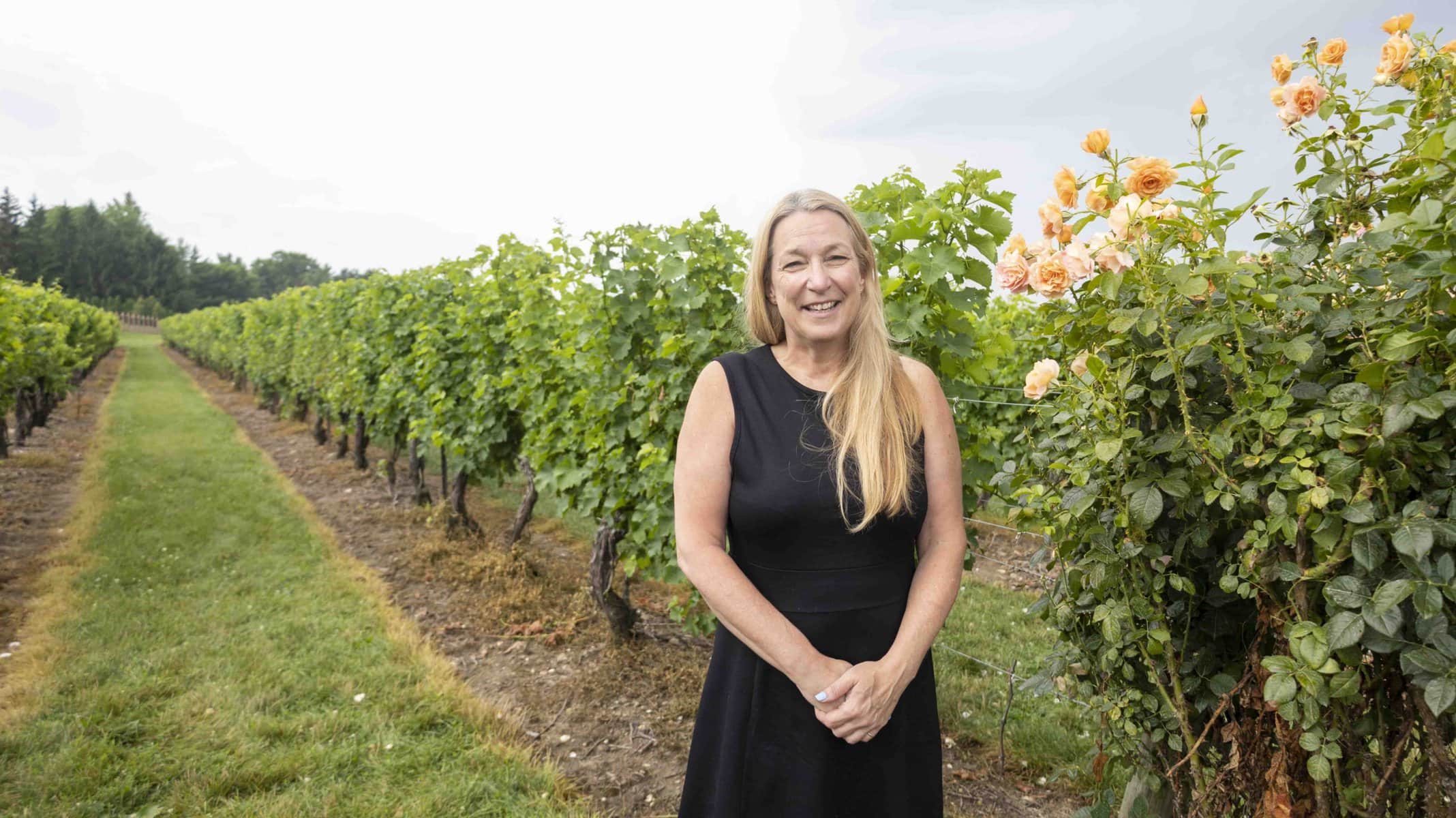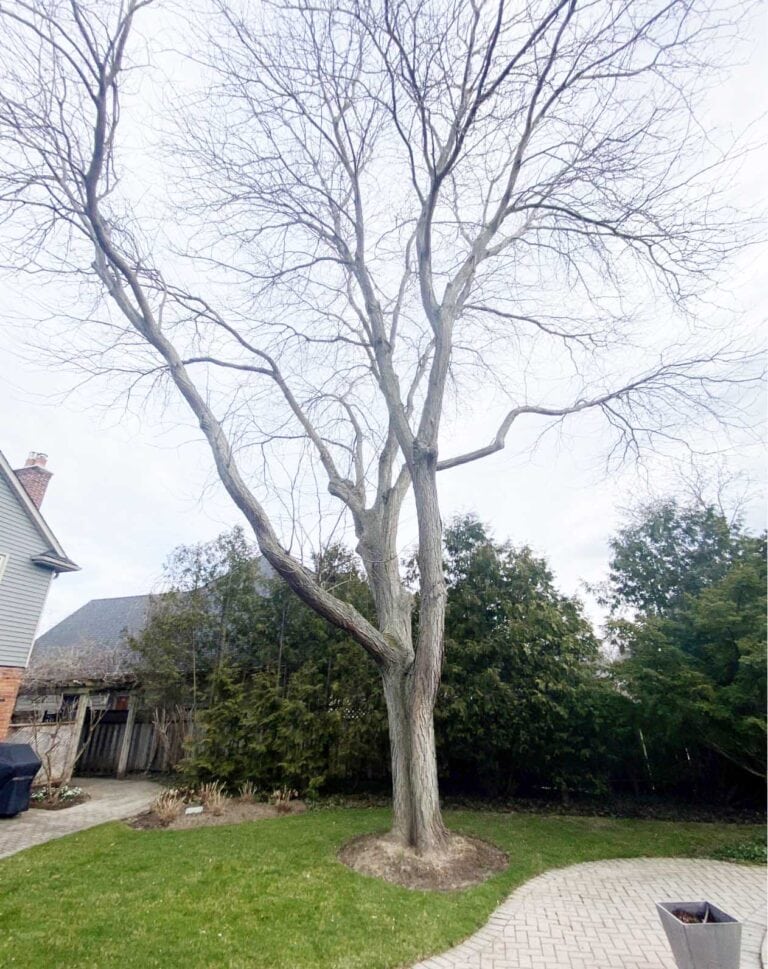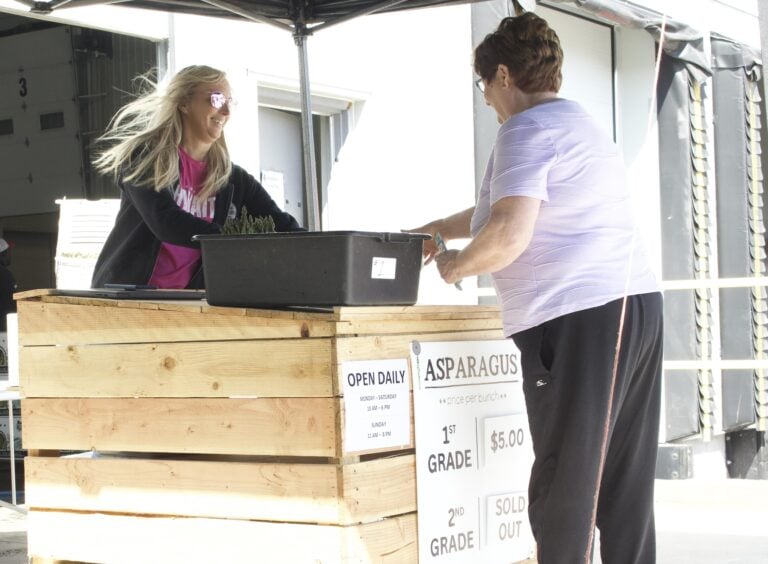The wine industry is once again calling on the government to eliminate the 6.1 per cent tax on VQA wines.
Niagara Region’s council unanimously supported a motion last week by Niagara-on-the-Lake Regional Coun. Andrea Kaiser asking the region to put pressure on the province to drop the tax.
She hopes that, after several calls over the years to remove the tax, it will be successful.
Kaiser said the wine industry has been pushing the province for more than 10 years on this issue, with no success.
“I think it’s important just to keep at it because the province needs to know that it’s still not resolved,” she told The Lake Report in an interview.
The tax, often referred to as a “sin tax,” is charged on Ontario VQA wines sold at on-site winery stores – not, for example, at an LCBO store.
“The wine industry sees it as an unfair tax,” Kaiser said.
Canada has some of the highest alcohol taxes in the world, according to the Canadian Chamber of Commerce: they report that Canadians pay about $20 billion per year in alcohol taxes.
If a winery in NOTL sells a bottle of wine at its on-site retail store, it’ll include the usual taxes that every business has to pay like HST, Kaiser said – but that’s not the end of it.
“Then, there’s this random 6.1 per cent tax that is required that we remit to the government,” she said.
“If you’re not allowing industries to be profitable and reinvest back in themselves, they can’t grow,” she said.
A report released in June by Deloitte Canada and commissioned by Ontario Craft Wineries, Tourism Partnership of Niagara and Wine Growers Ontario states that Niagara’s wine industry, if supported, could bring in $8 billion in gross domestic product to the region over the next 25 years.
One way to support the industry would be to eliminate the sin tax and distribution restrictions, states the report.
The long-term benefits of cutting the tax would outweigh any short-term losses, according to the report.
Some in the wine industry are already cash-strapped, Kaiser said.
It costs a lot for aspiring viticulturalists to start up, she said, and they need to invest a lot of money in necessary things such as infrastructure and agricultural land — it also takes three years before new vines start to bear fruit.
Then, add on the 6.1 per cent tax and “it really starts to impede on the ability for wineries to reinvest,” said Kaiser.
MPP Wayne Gates said he’s brought multiple bills to the Legislative Assembly of Ontario that would eliminate the tax.
“I’ve been very, very disappointed with this government, certainly with the Conservative government and the Liberal government before it,” said Gates.
He said when he’s brought the bill forward in the past, members would “stand up and talk and support it,” but there would be little follow-through.
“When it comes time that they can move the bill forward, get it into committee, have it debated and bring it back for a third reading and make it law — they never do that,” said Gates.
He said he’s going to bring the bill to eliminate the 6.1 per cent tax back to provincial parliament again soon.
“Maybe the government this time will support the bill and eliminate the 6.1 per cent tax. I think that’s the big issue,” he said.
Gates said he’s heard how difficult it’s been for small and medium-sized wineries to find the funds to stay in business.
“If we got rid of that tax, that would allow the local wineries to reinvest in their staffing, or their winery themselves,” he said.
Whatever profits they may earn from the tax being cut could, in turn, be redirected toward funding better marketing strategies, Kaiser said.
“A lot of small wineries are operating sort of like on a shoestring marketing budget,” she said.
They’re also struggling with the increased cost of wages, said Gates.
Kaiser and Gates agree that the province needs to start owning its domestic market — and for them, that means eliminating the tax and addressing what they say is a disadvantage wineries face when it comes to distributing their products at the LCBO.
Wineries are looking at a 73 per cent mark-up on bottles if they want to sell at the LCBO, said Kaiser.
She said if it’s a $20 bottle of wine, the LCBO takes 73 per cent right off the bat.
“There’s not a lot left for the individual wineries to be profitable,” she said.
The industry also faces low market shares in the LCBO and wineries also don’t have the option to directly deliver wine to customers — an option other provinces have, such as British Columbia.
“I think it’s time for everyone to be a little more visionary about the long-term viability of our industry… and of Niagara,” said Kaiser.
“This is an investment that we really need for the community. So, we’ll just keep at it.”











